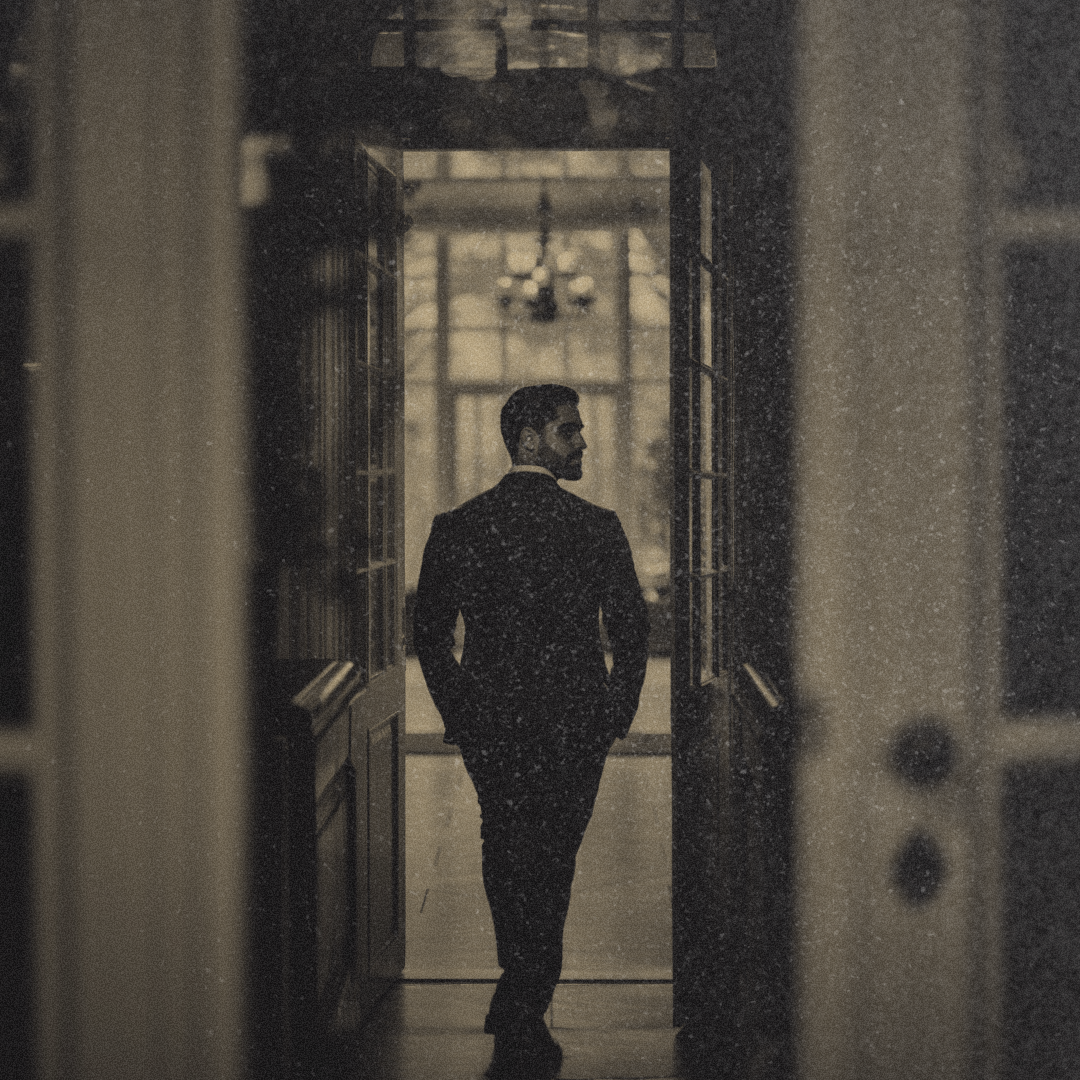People say love is about compromise. About putting your partner first, about meeting in the middle.
But what happens when “compromise” means erasing yourself piece by piece?
I used to think love was about keeping the person you cared about happy. You know, doing whatever it took to make things work.
Every time she asked me to give up something, I told myself it was fine. That love required sacrifice.

That if I just gave a little more, she’d finally be happy.
I was wrong.
Her Vision, My Sacrifice
Weddings are supposed to be a celebration of love. A day that reflects who you are as a couple.
Mine? It barely reflected me at all.
When Tasha and I first got engaged, I pictured something simple. An intimate ceremony in my parents’ backyard, fairy lights strung across the trees, surrounded by the people who actually knew us.
Tasha had a different vision.
“We need a real venue,” she had said, wrinkling her nose at my suggestion. “Backyard weddings feel so… thrown together.”
So, I let go of the backyard.
Then came the guest list. I wanted my college friends there. The people who had been with me through every major moment of my life.
But Tasha had other ideas.
“I just don’t think they fit the vibe,” she had said. “We need a certain level of elegance. You understand, right?”
One by one, my choices disappeared. The music, the food, even the color scheme. Every time I expressed an opinion, it was met with a sigh, a head tilt, a patient but firm explanation of why Tasha’s way was simply better.
And when she suggested rewriting my vows? That should’ve been my breaking point.
“They’re sweet, babe, but they don’t sound… refined,” she had told me, tapping a perfectly manicured nail against my notebook. “I’ll tweak them a little, okay? Just to make sure they’re perfect.”
Perfect.
That word had followed me through every decision, every compromise.
And now, standing in the groom’s suite of a venue I never wanted, wearing a suit Tasha had picked, preparing to say vows she had rewritten, I realized, nothing about this wedding was mine.
But I had made my choice. I had agreed to all of it.
And in less than an hour, I would be walking down that aisle, ready to marry the woman I had bent over backward for.
Or so I thought.
Stronger? Or Just Done?
The minutes leading up to the ceremony felt surreal. Guests took their seats. Music played softly through the speakers.
The groomsmen clapped me on the back, offering smiles and reassurance I hadn’t asked for.
And then, someone whispered, “She’s late.”
At first, I brushed it off. Nerves, last-minute makeup fixes. These things happened.
But then five minutes turned into ten. Ten turned into twenty.
The whispering grew. My mother fidgeted in her seat, concern etched across her face.
The wedding coordinator—who had spent months ensuring Tasha’s vision was executed flawlessly—was now pale and flustered, whispering furiously with the bridesmaids.
And then, finally, someone pulled me aside.
“She wants to talk to you,” Tasha’s maid of honor said quietly.
The air in my lungs felt too thick.
I followed her to the back of the venue, where Tasha stood in her designer gown, veil already removed, arms crossed over her chest.
Something inside me knew.

“Owen,” she started, voice soft but firm. “I can’t do this.”
I opened my mouth, but no words came out.
“I just… I’ve been thinking a lot,” she continued. “And I need someone who can challenge me. Someone… stronger.”
Stronger.
The word cut deeper than I expected.
I had given her everything she wanted. Adjusted. Compromised. Changed.
And it still wasn’t enough.
“I’m sorry,” she said, but there was no real emotion behind it. Only a careful, rehearsed calm.
She wasn’t crying. She wasn’t conflicted.
Because she had already made up her mind.
Behind me, the murmurs of the guests grew louder. The reality of what was happening was sinking in.
Tasha reached for my hand like she was offering some kind of peace, but I took a step back.
For the first time in a long time, I didn’t want to give her what she wanted.
She sighed. “I’ll handle the guests.”
And with that, she turned and walked away, leaving me standing there, staring at the wreckage of a wedding that had never truly been mine to begin with.
Breaking the Cycle
The worst part about being left at the altar wasn’t the embarrassment. It wasn’t the murmurs from the guests or the sympathetic looks from my family.
It was realizing that, deep down, I wasn’t even surprised.
I should have seen it coming.
After all, Tasha had been rewriting the script of our relationship from the beginning. Erasing the parts she didn’t like, molding me into the version of a fiancé she wanted.
And I had let her.
Standing there in the wreckage of our wedding, I felt something I hadn’t felt in a long time.
Relief.
The pitying stares, the awkward shuffling of guests, the wedding coordinator’s panicked whispering. All of it faded into the background.
Because for the first time in years, I didn’t have to try to be enough for Tasha.
She had made her choice.
And now, I was finally free to make mine.
So, while she “handled” the guests, I did the only thing that made sense.
I walked away.

I left behind the extravagant venue, the overpriced floral arrangements, the carefully curated version of a life I was never meant to live.
I ignored the whispers, the apologies, the attempts to smooth things over.
And for the first time in a long time, I stopped caring about what Tasha wanted.
I only cared about what came next.
When the Past Comes Knocking
One year later, I was no longer the man Tasha had walked away from.
The version of me who had bent over backward for her? He didn’t exist anymore.
I had moved on. Really moved on. A new apartment, new priorities, and most importantly, a new understanding of what I actually wanted out of life.
And then, one afternoon, I got a text.
Tasha: Hey. I was wondering if we could talk.
I stared at the screen, unsurprised but unimpressed.
Because of course, she wanted to talk now.
Curious but cautious, I agreed to meet at a quiet café.
No expectations. No nostalgia. Just closure.
When she walked in, she looked exactly the same. Perfect, polished, the picture of confidence. But when she sat down across from me, I saw something else.
Hesitation.
Regret.
She smiled, all charm and familiarity. “You look good, Owen.”
“Yeah,” I said simply. “I am.”
She shifted slightly. “I’ve been thinking a lot about us. About everything that happened.”
I leaned back, waiting.
Her smile faltered just a little. “I made a mistake.”

There it was.
I should have felt some kind of vindication. A year ago, I might have. But now? I just felt… detached.
“You always wanted to make me happy,” she continued, reaching for my hand across the table. “And I didn’t appreciate that. But I see it now. And I miss you.”
I glanced at her perfectly manicured fingers, the same ones that had rewritten my vows, reshaped my choices.
And I finally asked myself. Why would I want to go back to someone who had never accepted me as I was?
I met her gaze, calm and certain. “I don’t miss you.”
Her eyes widened just slightly. “Owen—”
I shook my head. “I spent years trying to be enough for you. But the truth is, you never wanted me. You wanted a version of me that fit your life. And I’m done being someone I’m not.”
For the first time, Tasha had nothing to say.
The silence stretched between us, thick with unspoken words, but I didn’t feel the need to fill it.
Instead, I stood up, tossed a few bills onto the table, and gave her a polite nod.
“Take care, Tasha.”
And with that, I walked out.
No regrets. No second-guessing.
Just freedom.
